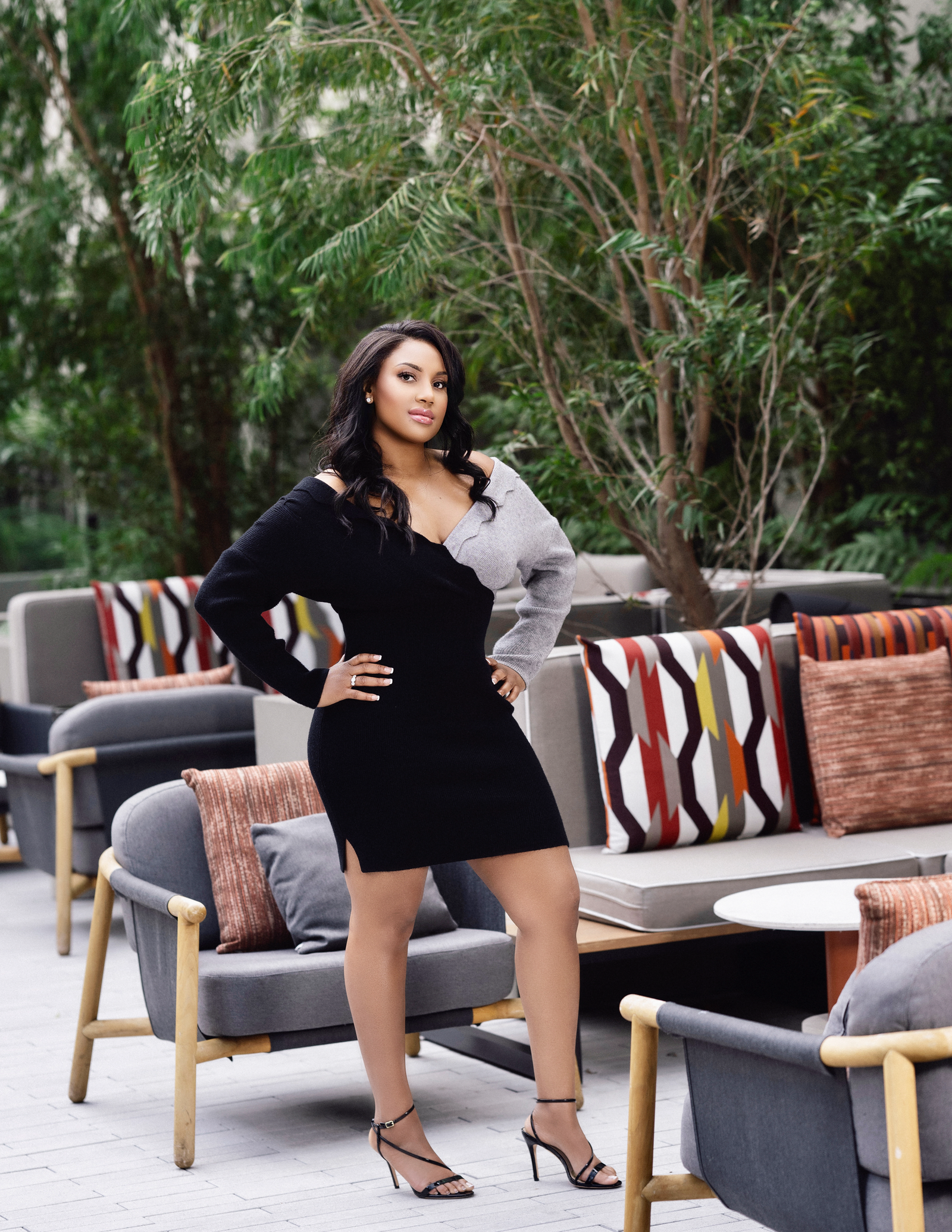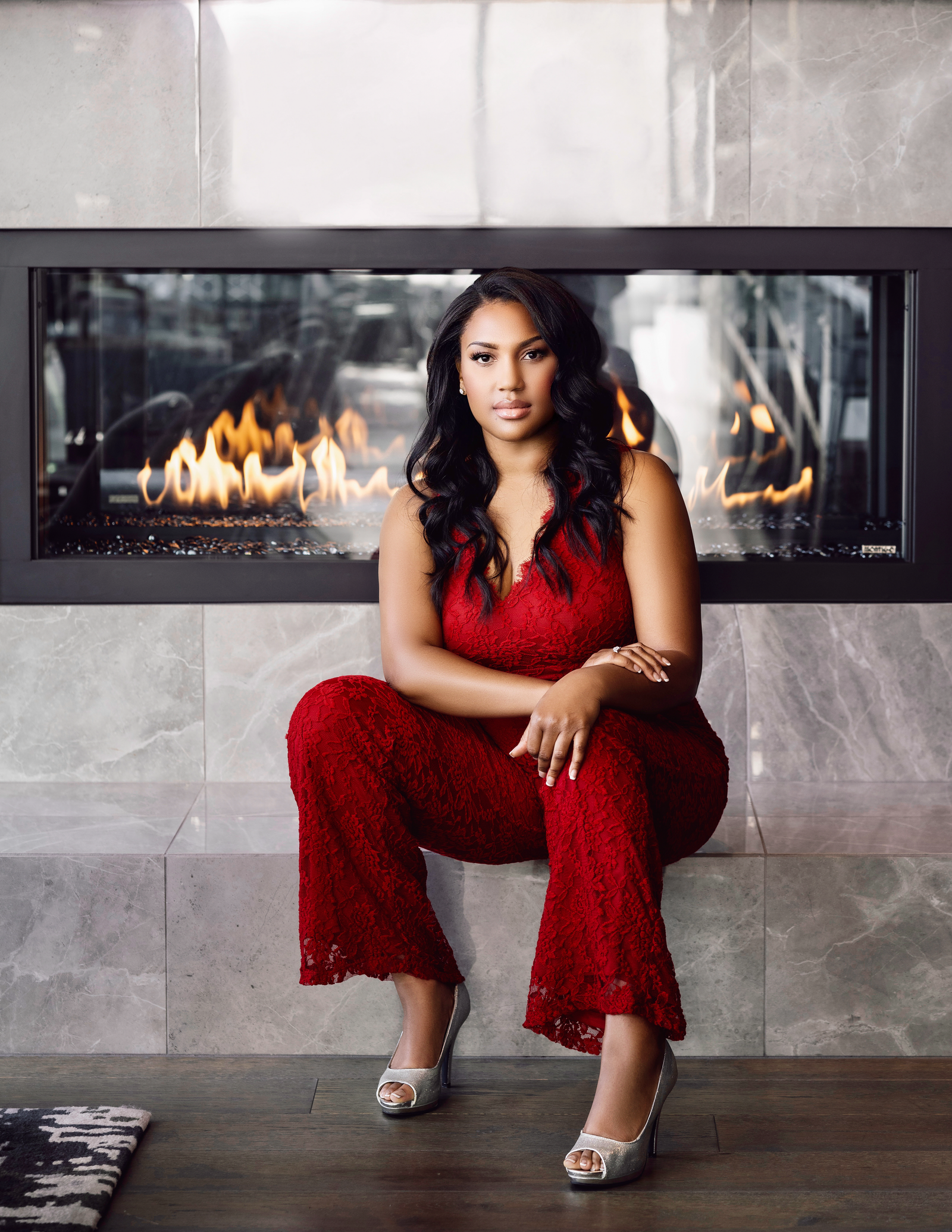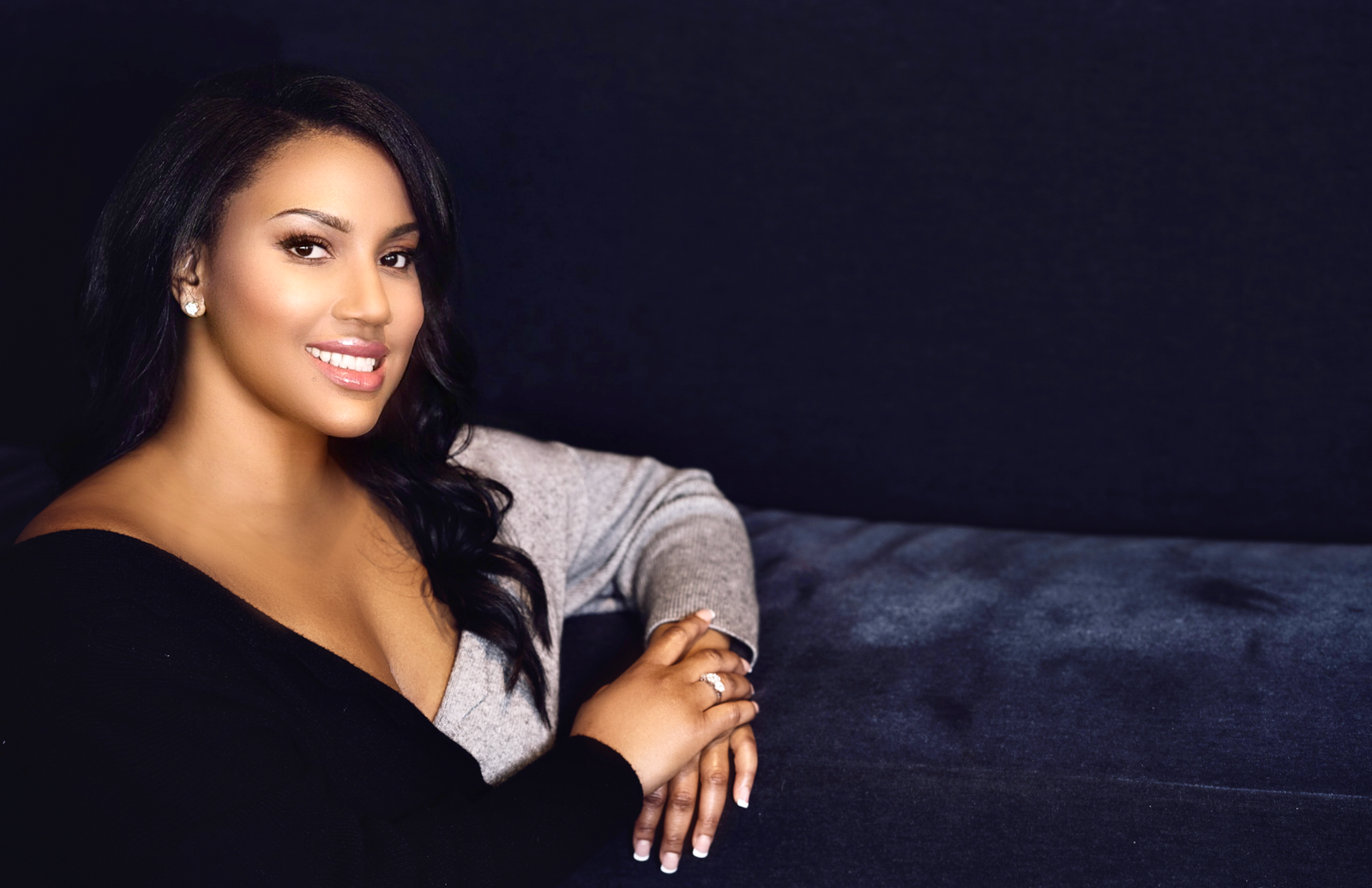When the Uniform Comes Off: Carlisa’s Approach to Supporting Athletes Off the Field
Writer: Richard Moore
Carlisa Harris was born to be an alpha. She exceeded her parents’ expectations at home and quickly made a name for herself in her community. From sports to academics, Carlisa continued to excel in everything she touched.
Raised in California, she played sports in all her grade levels. Her love for basketball and natural ability to charge her opponent landed her at point guard, where she’d often help lead her teams to victory. She took her courtside success to other arenas, including the martial arts mat. With precision and focus, she bested many opponents, was promoted over several belts and gathered many first-place trophies in tournaments.

Her stamina also pushed her to the front of the class in her studies. She achieved the highest honors at both high school and college levels. She balanced a strong presence as a student-athlete at West Los Angeles Junior College. In addition to injuries, Carlisa also encountered the heartbreaking loss of her best friend, April Murphy, while playing in college. These combined shuttered her collegiate sports career. After grieving her loss, Carlisa pushed ahead to receive her bachelor’s degree in Criminal Justice and her master’s degree in Social Work at Cal State East Bay University.
Her long-time Chief Instructor for Martial Arts, Prof. Damon Gilbert, explains that Harris embodies the core tenants his academy teaches its students. “Carlisa was taught the importance of the eight basic principles of life: Respect, Responsibility, Appreciation, Consideration, History, Humility, Philosophy, and the Physical/Mental,” recalls Gilbert. “When I look at what she has achieved as an adult, I’m not surprised. I believe that she truly understood the importance of these principles… and figured out how to apply them to her life.”
Carlisa was a well-liked, strong-willed athlete and student. She made her parents proud and inspired her classmates. On the outside, it seemed everything “worked” in her life. But the stress of managing expectations in a win-or-lose, team-driven sports environment secretly wore on her psyche. And, at times, it was tough to handle.

As a highly focused individual, she became aware of the strain and load that a student-athlete encounters regularly. Social lives are often skewed, the pressure becomes an incessant intruder, and balance is often treated as an unwelcome friend. Student competition can often evolve from a great tool to an unfortunate trigger when left unchecked. And Carlisa was no different. Though to most, she was considered a top-tier athlete, there were those parts of her that were often overlooked, such as her mental health.
To cope with the everyday struggles of growing up and competing at high levels, Carlisa found herself journaling and making goal lists. She practiced strong self-care rituals such as massages and focus exercises to stay connected to her purpose and abilities. Quickly she realized there was care available for athletes like her to strengthen themselves mentally, and she knew she wanted to help others like her.
So, Carlisa got to work. During her four-year degree, she interned with the US Probation Dept., as well as a full internship program at the local police department. After completing graduate school, she took on different mental health positions for nonprofits and group homes where she worked with minors on probation or dealing with chemical dependency challenges. Today, she continues to serve as a Medical Social Worker, focusing her energy on helping patients access counseling and mental health resources. Her heart for both collegiate and professional athletes, combined with her drive and focus in her career in the medical community, birthed in her a new passion: Different Lenses.

Wading into the full-time waters of counseling and mental health resources, she found a familiar issue amongst today’s athletes. Primed and positioned to win and compete, the lack of consistent, available mental health resources plagues the sports industry. Teammates and individual competitors often have little to no balance in their lives, and the stress associated with competing overweighs their personal health goals. Different Lenses is a mental health program designed for sport team organizations, and college and professional athletes that focuses on providing ongoing support during the athlete’s career on the team. “Different Lenses promotes clients to feel more in control of their emotions, have a better social life, and be able to manage healthy friendships and relationships,” says Harris. “We want athletes to have hope for their future.”
According to Carlisa, the program empowers individuals to take steps closer to where they would like to be personally while feeling part of the local community.
The motivation is noble, but does it work?
According to Coach John Beam from Laney College, it absolutely does. Marking the start of her journey in providing accessible mental health programs for athletes, Carlisa reached out to Coach Beam to practice her concept with his football team. Despite her full-time employment in healthcare, she saw an opportunity to intern with his athletic programs, which quickly transitioned into a paid position. And that paid position eventually gave birth to Harris’ Different Lenses program. “Carlisa acts as a social safety net that we don’t have on campus,” says Beam. “Student-athletes are here up to seven days a week, but crisis can happen at any time, and she is available for them.”
With the athletes at Laney College, Harris offered more than just counseling. She conducted workshops that teach how to cope with and handle issues that may arise. She provided the athletes with useful tools during their college years and after they move into their career lives, including two transitional care services for the student after they complete their athletic program.

Her work quickly received acclaim, and at one point, was featured on the Netflix series Last Chance U, where she was able to share how connecting athletes to mental health can bring positive change to a program.
Coach Beam says it’s because of Carlisa’s experiences that she made a truly impactful difference. “Mental health is a new frontier within athletics, and Carlisa was at the cutting edge. She comes from an environment where she can reflect on the backgrounds and issues that many of our student-athletes face daily. She has helped us create an ongoing program and has helped interview our current mental health specialists,” explains Coach Beam.
And the “issues” she assisted with were as diverse as the athletes themselves. Beam explained that this new, organized approach to mental health support for his athletes was a game-changer. “Before we had Carlisa, we didn’t know how much we needed her services. Her time as a social worker and individual therapist has changed the structure and landscape of our athletic department and our college,” says Beam.
After standing up the successful pilot program at Laney College, Carlisa has set her eyes on sharing Different Lenses with the rest of the vast world of sports. Her passion for seeing young athletes prosper in their mental health has been unstoppable. After being denied grants for which she applied, she remains dedicated to the vision. She has started multiple fundraisers for local businesses to help with the program’s expenses and expansion cost. When asked how she manages to sustain it, Carlisa’s answer seemed consistent with her character, “I want to work hard as I have always done and see this expansion through. It would be amazing if an organization would invest or sponsor the effort, but I don’t want to wait. It’s about perseverance, determination, hard work, and dedication.”
The program operates as a monthly subscription where a sports team organization, college, or individual professional athlete has affordable, strategic membership to a strong plan for mental health services and resources. Carlisa states that her clients will be granted end-to-end care that puts the right plan in place and provides the unique care each athlete deserves. “We are striving to build therapeutic relationships, continuity of care, and focusing on proactive mental health care services for athletes and teams,” Carlisa explains.

And that’s precisely what Different Lenses offers. Through a strong philosophy of being client-focused, outcome-oriented, and cost-effective, Carlisa aims to let every athlete, regardless of financial or personal background, have access to the support they need. The program focuses on creating an inviting service that functions within the framework of the team or organization’s program so that there’s a seamless approach to support the athlete’s career. Carlisa works with coaches and directors to create the right “whole team” approach that will ultimately drill down to the individual athlete’s specific needs. This way, there is a perfect balance between the team’s success and the athletes’ personal health goals.
But, according to Carlisa, it’s important to remember that mental health doesn’t always stop when the whistle blows. In many cases, athlete support can be both immediate and random. This requires a support program to stay nimble and respond whenever needed, even after the play clock stops. “Our flexible hours and ability to provide a same-day response in crisis situations is a valuable part of our practice,” explains Harris. “Fast response that allows clients to be seen from the time of the referral is within 24-to-48 hours, assuring adequate and quality care.”
So, what’s next for Carlisa?
“Expansion,” she explains. “I’m ready to see Different Lenses break the negative stigma of mental health in locker rooms across the nation.”
With a proven track record for high ambitions and the focus to see them through, there is no doubt that Carlisa will continue bringing effective change to today’s athletes. And with the success of her program, she hopes to continue pouring back into the community that helped her find her purpose.
Using part of her company’s proceeds, her goal is to provide donations and hardship scholarships for student-athletes like her looking to make a splash in sports. It’s another way to tackle stress and push young people toward their hopes and dreams.

According to Coach Beam, this makes Carlisa’s efforts in the sports community even more special. “Because our students come from marginalized and underrepresented groups, students will always need financial support,” says Beam. “Many of our student-athletes are told they cannot go to college or do not have the resources to further their academics. Scholarship money would be pivotal to changing lives.”
For Carlisa, it’s all about reaching athletes wherever they are. To her, competing at all levels is something to be respected and protected. That makes her more than a support for students. In Coach Beam’s eyes, it makes her an advocate. “Carlisa was a lifeline for students going through traumatic experiences and consistently found solutions for their situations. She was an advocate for students who were going through mental health crisis at all times, including holidays, weekends, and throughout the pandemic.”
When Carlisa is not changing lives, she can normally be found at the gym, with family, or in nature. “Students and clients often ask how I can do it all,” Harris explains. “For me, it’s working out, meditating, hiking and water, and of course, watching sports. Not to mention laughing a lot. I love to enjoy life. There’s so much to appreciate.”
And thanks to Carlisa, there are many athletes today who have learned that valuable lesson as well.
For more information about Different Lenses, or to reach out to Carlisa about supporting your program, you can reach her at: differentlensesllc@gmail.com.

